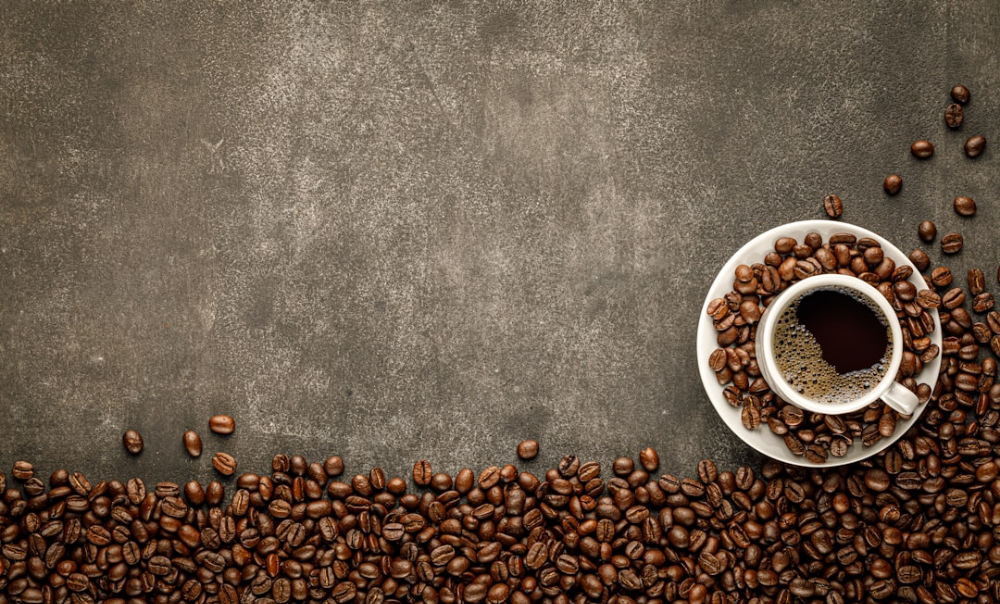Embarking on a journey of weight loss surgery is a life-altering decision, signifying a profound commitment to health and well-being. This transformative weight loss surgery procedure necessitates significant adjustments to dietary habits and lifestyle choices, extending beyond just food intake to include beverages. Among the most common beverages consumed globally, coffee and other caffeinated drinks often pose a question for individuals navigating their post-operative recovery: is caffeine consumption after weight loss surgery safe, and if so, how should it be managed? Understanding the nuanced recommendations and potential implications of caffeine intake is crucial for ensuring optimal healing, preventing complications, and supporting long-term success. This authoritative guide will delve into the complexities of caffeine and its interaction with the post-bariatric system, providing clear, evidence-based advice for patients. We will explore the timing of reintroduction, the importance of hydration, and the specific considerations that every patient should be aware of to safeguard their health and recovery journey.
Table of Contents
The Impact of Bariatric Surgery on the Digestive System
Weight loss surgery, such as gastric sleeve or gastric bypass, fundamentally alters the digestive anatomy and physiology. The stomach is significantly reduced in size, impacting its capacity and the speed at which food and liquids pass through. This alteration necessitates a complete overhaul of eating and drinking habits to accommodate the new digestive system. The early post-operative period is characterized by extreme sensitivity, as the surgical sites heal and the body adjusts to its new configuration. During this critical time, the focus is on promoting healing, preventing complications like leaks or strictures, and ensuring adequate hydration and nutrient intake with easily digestible, non-irritating substances. The rapid transit of food and liquids can also influence how substances like caffeine are absorbed and tolerated.
Why Caffeine Requires Special Consideration
Caffeine, a natural stimulant found in coffee, tea, and many other products, can have various effects on the body. While it offers benefits such as increased alertness and improved mood for many, its properties can be problematic for bariatric patients, especially in the initial stages of recovery. The primary concerns revolve around its potential to cause gastric irritation, contribute to dehydration, and, in some cases, exacerbate symptoms like heartburn or acid reflux, which can be more prevalent after certain bariatric procedures. The diuretic effect of caffeine can increase urine output, making it harder to maintain the crucial hydration levels required for healing and overall health post-surgery. Furthermore, coffee, often consumed with sugar and cream, can introduce unnecessary calories and fats, which conflict with the strict dietary guidelines aimed at maximizing weight loss and nutrient absorption after the weight loss surgery Turkey.
Expert Recommendations for Caffeine Intake Post-Surgery
Navigating the world of beverages after bariatric surgery requires careful planning and adherence to medical advice. For caffeine, the guidelines are clear and phased:
Within the first month post-surgery, it is imperative to consume only decaffeinated coffee, if desired at all. The digestive system is at its most vulnerable during this period, and introducing anything that could irritate the surgical site or contribute to dehydration is strongly discouraged. Decaffeinated options significantly reduce the risk of gastric upset and the diuretic effect, allowing the body to focus on healing.
After the initial one-month recovery period, if coffee is consumed, it must be accompanied by a minimum daily intake of 2 litres of water. This crucial hydration strategy helps to counterbalance any potential diuretic effects of caffeine and ensures the body maintains optimal fluid balance. Patients should also prioritize plain, unsweetened coffee or tea, avoiding high-calorie additions that undermine their dietary goals. It is always recommended to sip slowly to prevent discomfort or stretching of the new stomach pouch.
Scientific Perspectives on Coffee Post-Bariatric Surgery
Scientific research supports a cautious approach to caffeine consumption after bariatric surgery. A systematic review by Al-Jarallah et al. (2020), published in Cureus, meticulously examined the existing literature on coffee consumption following bariatric procedures. The review concluded that while moderate coffee consumption is generally considered safe for the broader population, its specific impact on bariatric patients warrants careful consideration. Key concerns highlighted included the increased potential for dehydration due to caffeine’s known diuretic properties, the possibility of gastric irritation in a highly sensitive post-operative stomach, and potential interference with the absorption of essential nutrients. The review underscored the critical need for individualized dietary recommendations, stressing the profound importance of adequate hydration and diligent monitoring for any adverse symptoms. This is particularly vital in the early post-operative phase when the gastrointestinal system is undergoing significant healing and adaptation. The authors advocated for comprehensive patient education, encouraging healthcare providers to counsel patients on responsible coffee intake, with an emphasis on beginning with decaffeinated options and ensuring a robust daily fluid intake when reintroducing caffeinated beverages. Such measures are designed to mitigate potential complications and support both the immediate recovery and the long-term health outcomes of bariatric patients.
This research reinforces the authoritative stance on delaying caffeinated coffee and prioritizing hydration.
Comparison of Caffeine Consumption Stages
Understanding the differences in recommendations based on the recovery timeline is essential for bariatric patients. The table below illustrates the contrasting approaches:
| Factor | First Month Post-Op | After One Month Post-Op |
|---|---|---|
| Caffeine Type | Decaffeinated Only (after 10 days) | Regular (with strict water intake) |
| Hydration | Absolute priority; small, frequent sips of water | Minimum 2 litres of water daily alongside coffee |
| Stomach Sensitivity | Extremely High; prone to irritation | Reduced, but still sensitive to irritating substances |
| Potential Risks | Dehydration, gastric irritation, acid reflux | Dehydration if water intake is insufficient, potential irritation |
| Key Focus | Healing, preventing complications, nutrient absorption | Long-term health, sustainable habits, managing intake |
Managing Potential Side Effects and Concerns
Even with careful adherence to guidelines, some patients may experience side effects from caffeine. These can include heartburn, acid reflux, stomach upset, or increased anxiety. If any of these symptoms arise, it is crucial to discontinue caffeine consumption and consult with your medical team. They can provide personalized advice and adjust your dietary plan as needed. Staying hydrated remains paramount, not just to mitigate caffeine’s diuretic effect, but as a cornerstone of overall post-bariatric care. Dehydration can lead to serious complications and can hinder Bariatric Aftercare: Sustaining Health Post-Surgery, which is why patients are continually advised on strategies for robust fluid intake.
Beyond just coffee, it’s important to consider all sources of caffeine. Many sodas, energy drinks, and even some medications contain significant amounts of caffeine. Patients should carefully read labels and avoid products that are high in caffeine, especially those also high in sugar, which can lead to dumping syndrome or unnecessary calorie intake. Focus should always remain on nutrient-dense foods and physician-approved beverages that support recovery and post-bariatric nutrition: managing deficiencies effectively.
CK Health Turkey: Your Partner in Post-Bariatric Wellness
At CK Health Turkey, we understand that the journey to a healthier life through weight loss surgery extends far beyond the operating theatre. Our commitment is to provide comprehensive, patient-centric care that encompasses every aspect of your recovery and long-term well-being. As a leading provider for international patients, particularly those from the United Kingdom, we offer world-class medical expertise, state-of-the-art facilities, and a supportive environment designed to ensure your comfort and safety. From pre-operative consultations to detailed post-operative guidance on diet, hydration, and lifestyle adjustments, including nuances like caffeine consumption, our multidisciplinary team is dedicated to your success. Our specialists work closely with each patient to develop personalized plans, ensuring you receive the highest standard of care tailored to your unique needs. We empower our patients with the knowledge and tools required for a successful transition into a healthier lifestyle. If you are considering bariatric surgery or require expert guidance on post-operative care, including dietary management and lifestyle changes, we invite you to connect with us. Discover the difference of compassionate, high-quality care that prioritizes your health outcomes. Get in touch with CK Health Turkey today for a consultation or visit our website to learn more about our comprehensive services and how we can support your journey.
Cost Comparison: Bariatric Surgery in Turkey vs. United Kingdom
When considering major medical procedures like bariatric surgery, cost is often a significant factor for international patients. Turkey has emerged as a preferred destination due to its combination of advanced medical facilities, highly skilled surgeons, and more accessible pricing compared to many Western countries, including the United Kingdom. Below is an illustrative comparison of typical costs (in GBP) for common weight loss procedures:
| Service/Item | Turkey Price (GBP) | UK Price (GBP) |
|---|---|---|
| Gastric Sleeve | £3,500 – £4,500 | £8,000 – £12,000 |
| Gastric Bypass | £4,500 – £5,500 | £10,000 – £15,000 |
| Gastric Balloon | £2,000 – £3,000 | £4,000 – £6,000 |
| Revision Surgery | £5,000 – £7,000 | £12,000 – £18,000 |
| Pre-Op Consultations | Often included in package | £150 – £300 each |
Successfully managing caffeine consumption after weight loss surgery is a critical aspect of post-operative recovery and long-term health maintenance. The journey requires meticulous attention to dietary guidelines, especially regarding hydration and the phased reintroduction of specific beverages. By adhering to the expert recommendations — starting with decaffeinated options in the immediate post-operative month and ensuring robust daily water intake when reintroducing caffeinated beverages later — patients can minimize risks and support optimal healing. This diligent approach not only prevents potential complications like dehydration and gastric irritation but also reinforces the disciplined habits essential for sustained weight loss and improved overall well-being. Prioritizing fluid intake and understanding your body’s response to different substances will empower you to make informed choices that contribute significantly to your successful post-bariatric life.
FAQs
When can I start drinking coffee after weight loss surgery?
It is generally recommended to avoid caffeinated coffee for at least the first month post-surgery. Decaffeinated coffee may be introduced in small amounts after the first week, strictly following your surgeon’s advice.
Why is caffeine restricted after bariatric surgery?
Caffeine is restricted primarily due to its diuretic effect, which can lead to dehydration, and its potential to irritate the sensitive healing stomach lining, potentially causing heartburn or discomfort.
What kind of coffee can I drink in the first month?
During the first month, if you choose to consume coffee, it should be strictly decaffeinated. This minimizes the risk of dehydration and gastric irritation.
How much water should I drink if I consume coffee after the first month?
After the first month, if you reintroduce caffeinated coffee, you must ensure a minimum daily intake of 2 litres of water to counteract any diuretic effects and maintain hydration.
Can caffeine affect nutrient absorption after surgery?
While more research is needed, some studies suggest caffeine might interfere with the absorption of certain nutrients, such as iron and calcium, which are already critical concerns for bariatric patients. Always prioritize nutrient-rich foods and supplements.
What are the signs of dehydration post-bariatric surgery?
Signs include dark urine, dry mouth, fatigue, dizziness, and decreased urine output. If you experience these, increase your fluid intake and consult your healthcare provider.
Are energy drinks allowed after weight loss surgery?
No, energy drinks are strongly discouraged due to their high caffeine content, added sugars, and potentially irritating ingredients. They pose a significant risk for dehydration and dumping syndrome.
Can I drink tea after weight loss surgery?
Decaffeinated herbal teas are generally safe and encouraged after the initial post-operative period. Caffeinated teas (black, green) should be introduced cautiously and with ample hydration, similar to coffee.
What should I do if coffee causes me discomfort?
If coffee causes heartburn, nausea, or any discomfort, stop consuming it immediately and consult your bariatric team. Your body’s tolerance can vary.
Are there any long-term effects of caffeine on bariatric patients?
Long-term, excessive caffeine intake without adequate hydration can contribute to chronic dehydration and may exacerbate acid reflux. Moderation and consistent fluid intake are key for lifelong wellness.






